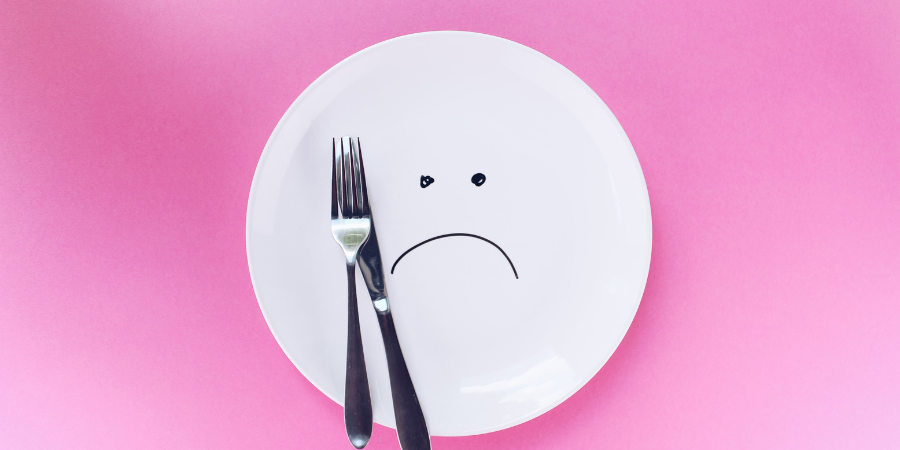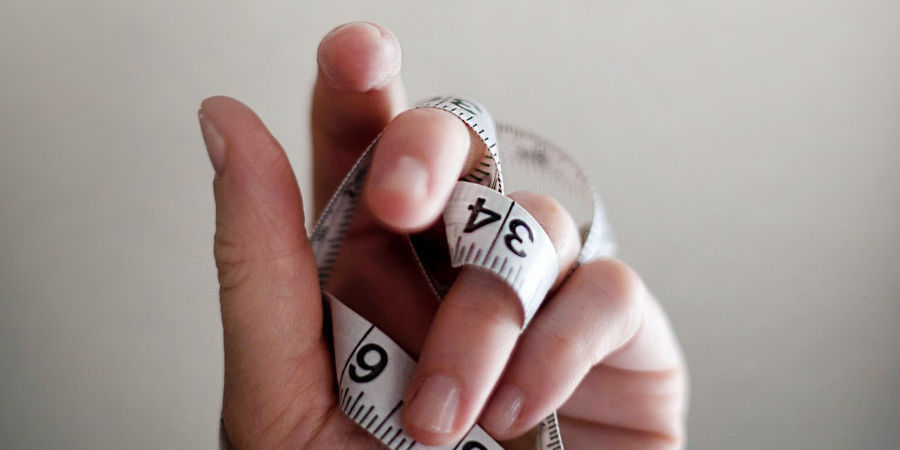
Written by:

Medically Reviewed by:
Last Updated:
June 4th, 2025
Eating Disorders | Types, Symptoms and Causes
When people think of an eating disorder, their minds can often shift to young women struggling to come to terms with their body image. Despite this misconception, eating disorders are serious mental illnesses that can impact people from all ages, genders and backgrounds. This means that eating disorders pertain to far more than just food, and they often require some form of professional intervention to address.
If you’re wondering whether you have an eating disorder or are concerned for a loved one, this page will explain what eating disorders are, how they develop, the common signs to watch out for and how to take your first steps towards recovery.
What is an eating disorder?
An eating disorder is a mental health disorder characterised by an obsessive preoccupation with food intake alongside unhealthy eating habits and behaviours. Unfortunately, these behaviours can have a detrimental impact on your physical and mental health, creating additional health issues to the eating disorder.
What is an eating disorder?
Why do people develop eating disorders?
The reasons why someone may develop an eating disorder are varied and complex, which sometimes makes it a difficult mental health disorder to comprehend. However, neurological and psychological research has given us a better understanding of the causes of eating disorders.
In some cases, those who suffer from eating disorders such as anorexia and bulimia may have a distorted view of the relationship between their body weight and their self-esteem. These distorted views cause some people to engage in restrictive and dangerous eating habits. These types of eating disorder present similar symptoms to body dysmorphic disorder, whereby your perception of your body image and weight does not align with reality.
On the other hand, an eating disorder may develop as a result of trauma and any unresolved negative emotions. In these instances, some people may engage in abnormal eating habits, rituals and routines in an attempt to exercise control over one aspect of their life and avoid further trauma.
However, scientists have discovered that eating disorders can influence our brain chemistry. For example, if you are anxiously trying to avoid food intake (anorexia) or purge food from your body (bulimia), submitting to these anxieties can cause a release of serotonin. This serotonin release can become addictive, making you feel happy when you engage in unhealthy eating habits, even if it is causing significant harm to your body.
Eating disorder symptoms and warning signs
You cannot solely rely on the external symptoms of an eating disorder to determine whether a loved one or yourself is experiencing one. People with eating disorders tend to hide their actions and inner feelings from others due to guilt, shame, or denial about their eating disorder. So, here are some pointers for identifying the hidden signs of an eating disorder in yourself and others:
Spotting your own eating disorder
- You’re unable to stop thinking about avoiding or consuming food even when these thoughts make you feel anxious.
- You’re not at ease until you have engaged in a specific eating habit such as avoiding, purging or bingeing food.
- You engage in obsessive body checking activities, such as constantly checking your appearance in the mirror and weighing yourself on an increasingly frequent basis.
- You lie to friends and family members about your food intake, feeling uncomfortable when they try to discuss your habits with you.
- You’re hiding your eating habits from others, finding excuses to eat alone or engage in unhealthy behaviours when nobody is looking.
- You experience sudden weight gain, weight loss or dramatic fluctuations in body weight within very short time spans.
Signs of an eating disorder in someone else
- They present a very regimented or restrictive attitude towards their food intake.
- They’re avoiding eating in public without giving a reasonable explanation for doing so.
- They disappear to the toilet or bathroom for long periods of time.
- They display regular, dramatic mood swings, often seeming lethargic.
- Their weight and appearance seem to change every time you see them.
- They either obsessively discuss their eating habits or completely withdraw and avoid the subject of food when it is mentioned.
How eating disorders impact your health
Physical risk factors of an eating disorder
Your body needs food to maintain the health of your internal organs, and therefore, your survival. Should you continue to reduce your food intake or purge food by making yourself vomit, your body will become weakened by the lack of food. This is known as malnourishment, which can prove fatal when your body lacks the calories and nutrients it needs to keep you alive.
Conversely, the chronic overconsumption of unhealthy foods such as sugary and fatty foods can become a contributing factor to health conditions such as heart disease, Type 2 diabetes and certain types of cancer.
Psychological risk factors of an eating disorder
People who suffer from eating disorders often report feelings of depression or anxiety due to feelings of isolation and helplessness. As a result, your personal relationships with friends and family members may begin to suffer the consequences of an eating disorder.
Without receiving professional help, some people with eating disorders also experience suicidal ideation and tendencies. This is because it can make you feel trapped in a cycle of low self-worth. Poor body image often causes the eating disorder, and then feelings of guilt and shame perpetuate the unhealthy behaviour.
What to avoid if a loved one has an eating disorder
Before we explain how you can help a loved one begin their eating disorder recovery, we would like to clarify what you should avoid doing or saying around somebody suffering from an eating disorder.
Your good intentions may have negative consequences, which can worsen the situation or interfere with their recovery. However, there are ways in which you can avoid potentially harmful comments or actions. If you wish to help a loved one recover from an eating disorder, remember these pointers:
Do not comment on their weight
You may be inclined to respond to any positive or negative comments this person makes about their recent weight gain or loss. However, if this person is suffering from an eating disorder such as anorexia, bulimia or binge eating disorder, it can be very unhelpful to comment on their body weight. This is because those who suffer from eating disorders have an unhealthy preoccupation with their weight and appearance.
If you praise recent weight loss, for example, you may be inadvertently validating their disproportionate view of how their self-worth is solely dependent on their lower weight. So, it is better not to talk about this subject unless this person wants to open up to you about their eating disorder.
Do not interrogate them or control what they eat
It is best not to make comments on any eating habits or behaviours that could be construed as rude, condescending or mocking. This will only make the person suffering from an eating disorder feel even more isolated from everybody around them. Likewise, you should not attempt to force them to eat or not to binge. These actions include physically giving and removing food from their presence or guilt-tripping them into eating.
Those with eating disorders typically crave complete control over their food intake. You may attempt to reverse the harm they are causing themselves. However, you cannot heal their eating disorder for them. Instead, a mental health professional can provide the right guidance to begin their eating disorder recovery.
Do not try to make them feel ashamed
Although the stigma surrounding eating disorders is gradually decreasing thanks to improved awareness and education, many sufferers are afraid to discuss their struggles due to fears about how they will be perceived.
The shame experienced by many people with eating disorders can cause feelings of depression and isolation. Therefore, this person may already feel as if they are a burden to others and that nobody understands their struggle. Try to remind them that they are not a burden to anybody and that you are available to listen and offer support.
How you can help a loved one with an eating disorder
Fortunately, our awareness of eating disorders has improved in recent years thanks to the research conducted by countless psychologists, neurologists, charity workers and healthcare professionals.
The best thing you can do is remind this person that they can receive professional help for eating disorders. Whether they would like to attend a local support group or a programme at an eating disorder clinic, explore their eating disorder treatment options with them to help this person feel supported.
At Primrose Lodge, we understand that reaching out for help can feel daunting. Whilst Primrose Lodge does not offer eating disorder treatment, at our sister rehab clinic ‘Banbury Lodge‘ our friendly and highly-trained members of staff are able to provide eating disorder treatment. Addictive behaviours and mental health disorders are often caused by underlying psychological causes. Our eating disorder treatment programme at Banbury Lodge addresses these issues to help you heal from your past and start to live a healthier, happier life free from an eating disorder.




